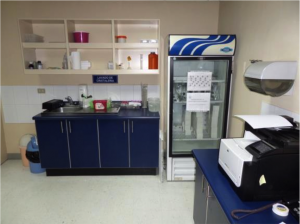Guatemala could soon be leading the way in providing better fungal diagnostic services for HIV patients in Central America, thanks to a partnership between the Asociación de Salud Integral (ASI), and Global Action Fund for Fungal Infections (GAFFI).
Amongst a population of 14.7 million, an estimated 58,000 people are HIV infected, but only 15,136 patients currently attend the country’s HIV comprehensive care units and late HIV diagnosis is common.
Professor David Denning, President of GAFFI explains: “In Guatemala only 53 per cent of the HIV population receive anti-retroviral therapy but HIV infected patients tend to present very late because of denial and stigma, and early death is the biggest problem. Guatemala is an excellent global location to both make big improvements in healthcare and demonstrates the value of combined fungal diagnostic availability and enhanced clinical training. At the end of the program, the country will have the first national reference laboratory specialized in mycology providing diagnostic services to HIV patients in Central America.” 
Asociación de Salud Integral is an NGO operating one of the largest comprehensive care units for HIV in Guatemala serving as a reference laboratory for HIV, as well as specialized diagnosis of tuberculosis, for most of the HIV care units of the country. However the diagnosis of fungal diseases is limited and this project will provide the core elements to improve the diagnosis and treatment of HIV patients with a fungal disease across the country. The program will allow data collection on which future healthcare services for HIV patients in Guatemala and internationally, can be improved.
This project has been designed to test that improving fungal diagnostic capability for HIV patients will improve clinical outcome. By adopting a (small) country-wide approach, with a modest number of cases that tend to present late to care for all HIV comprehensive care units in Guatemala, data capture will be easier and impact easier to demonstrate.
“The findings will have profound impact for HIV programs in other countries because HIV patients with a fungal infection need the expert diagnosis and care that mycology laboratories provide in concert with expert clinicians. By demonstrating that this works in Guatemala, other countries will follow this example,” Professor Denning said.